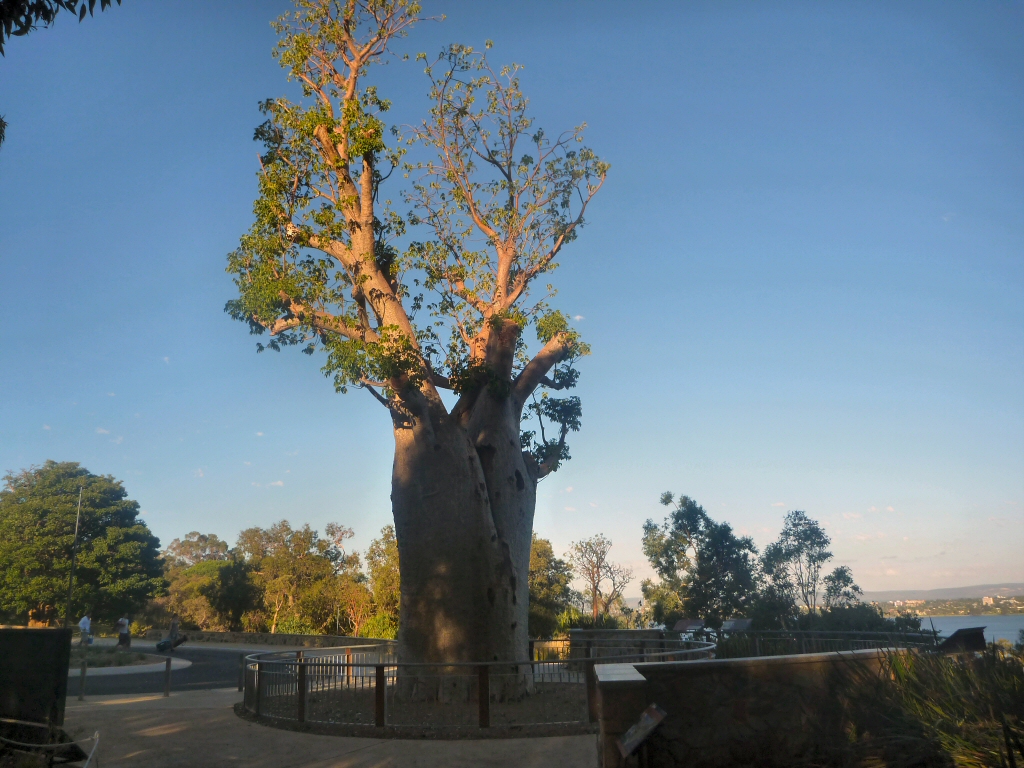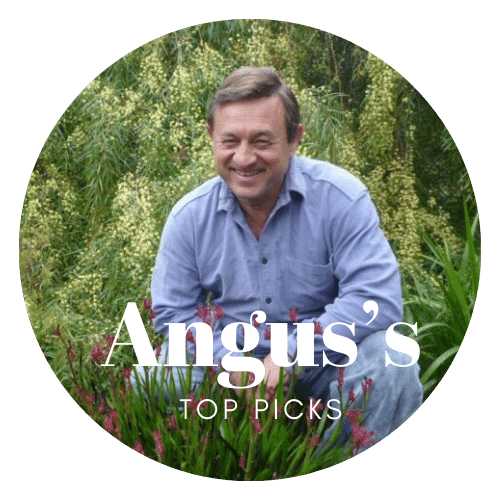The distinctive Baobab tree is an amazing plant, most successful in tropical areas, and not to be confused with the Queensland Bottle Tree, Brachychiton rupestris. Adansonia does not like the cold at all and will flourish only in tropical conditions, whereas the Brachychiton can be grown as far south as Victoria.
The Australian Baobab bears large, ornate and fragrant white flowers in the wet season, with the flowers opening at night. The tree will drop its leaves in the dry season. It needs very well drained soil in a dry spot. It can be grown in more temperate areas with moderate success if given a very warm, sheltered microclimate or grown in a container indoors. It is very susceptible to overwatering and root rot during dormancy (winter).
The fruits have an edible white part, eaten by Aboriginal people, it is refreshing and tastes like sherbet. The trees have a variety of other uses as well, including using the sap for drinks, and the hollows of trees collect fresh water. The young roots are also eaten.
Fresh seed will germinate readily, seedlings are vulnerable to damping off.
Adansonia gregorii – Bottle Tree

Family : Malvaceae
Cultivar Name:
Plant Type : Small tree, Large tree
Width : 10
Flowering Time : Spring, Summer
Soil Type : Sandy, Sandy loam
Climate Zone : Sub-tropical, Warm temperate, Semi-arid
Growth Habit : Deciduous, Open foliage, Spreading
Soil Moisture : Well-drained
Special Uses : Edible, Decorative fruit
Scientific Name: Adansonia gregorii
Common Name : Bottle Tree
Height : 15
Flower Color : White
pH Level : Neutral
Plant Environment : Indoor, Container growing, Flower garden, Drought resistant
Light : Sunny
Lifespan : Perennial
Frost Tolerance : Tolerates light frost
Attracts Wildlife :
